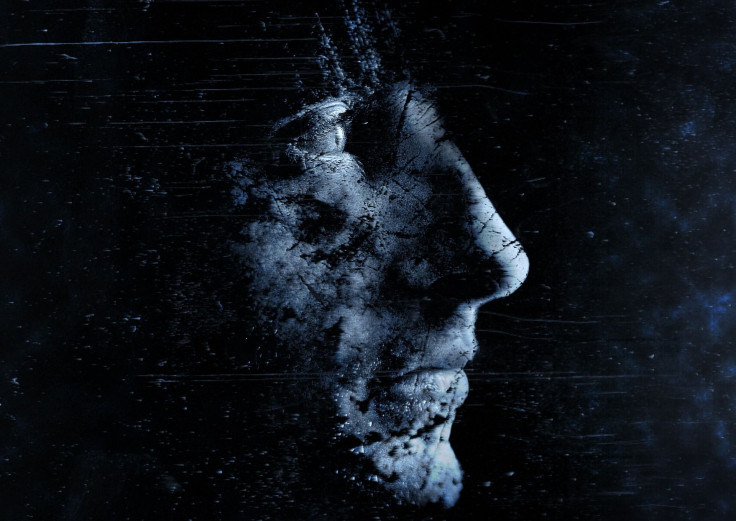What Is Dual Drunk Personality Disorder? 4 Personalities You Can Become During A Blackout From Alcohol
Beyond your Sunday morning hangover — after the headache clears, the stomach-turning hours pass, and your appetite returns — regret may surface. If you cringe as you hear about the unrecognizable person you became late in the night, and feel a pang of unease at what your alter self did while you were blacked-out drunk, you may have a condition called Dual Drunk Personality (DDP) Disorder.
Although the diagnosis is not yet listed in the DSM-IV (Diagnostic and Statistical Manual of Mental Disorders), and so doesn't have an official treatment, many drinkers are able to relate to the pathology of this personality disorder as they recall a time when mysterious versions of themselves took over their thoughts and actions after one too many drinks.
Where do you go when you black out? Who do you become?
Alcohol is an omnipresent part of our society. Kegs and drink specials are found in restaurants, television commercials, billboards, movies, advertisements, and even work environments. Those who can’t stop after just one or two drinks may eventually fall down the rabbit hole into mornings laced with the ugly truths of the things they’ve done. They may have to confront the possibility that they could have DDP. According to the National Institute on Alcohol Abuse and Alcoholism, alcohol’s effects on an individual’s brain structure is complex and not easily understood, especially with varying factors from genes, environment, diet, and mental health coming into play.
Even one night of heavy drinking can scramble the brain’s delicate balance of neurotransmitters. Although it’s more common to see neurotransmitters relay information too slowly or trigger drowsiness the more a person drinks, alcohol can also induce mood and behavior changes, including depression, agitation, and memory loss. On the other side of this dismal coin is alcohol’s ability to cause an increase of serotonin and endorphin release, which are two chemicals in the brain responsible for feelings of relaxation and euphoria.

Disappearing During Black Outs
The moment you overdo it, you overwhelm your neural network, making it difficult to organize and juggle your emotional processing center. Transient amnesia, more commonly known as black outs, block short-term memory and make it difficult to seamlessly control action and thought. However, this type of amnesia isn't a loss of consciousness, and doesn't have to involve alcohol — sometimes you’re in the middle of a test or just got into a car accident.
During a black out, you don’t even begin to catalogue any memories. There is a momentary shutdown of the storage process in the brain and ability to refer back to past memories. This can make it difficult or nearly impossible to understand your motives and intentions while under the influence.
This begs the question — during an episode of DDP, who emerges when you are not present to take control? Is it your true self? Does the alcohol pull back the veil and reveal who you really are without the sobriety steering wheel? Or is it a layer of suppressed emotions, buried and finally able to dig its way to the surface while you are unable to hide it any longer? The science isn’t definitive as of yet, but social behavior and addiction researchers are on their way to the answer.
In a recent study, published in the journal Addiction Research & Theory, scientists discovered after examining nearly 200 undergraduate students that there are four different types of drunks. They range from “Hemingways” or those who can drink without character changes and often don't experience alcohol-related consequences; next are the “Mary Poppins” or those who become nicer, more responsible, and experience fewer negative effects; thirdly are the “Mr. Hydes” or those who develop an alter-ego and have a tendency of being less responsible, less intellectual, and more hostile, and are most likely to experience harmful consequences as a result of their drinking, such as blacking out; and lastly, the “Nutty Professors” or those who transform into more confident and extroverted versions of themselves that result in the fewest negative reprecussions.
You may be any one of these drunks throughout your lifetime, but one stands staunchly alone against the rest - Mr. Hyde. The drunk one who casts a shadow over any kindness they may have exhibited when sober, the one who eventually wakes up and has to listen to the pain they caused, all the while pretending they remember. The Mr. Hydes of the bar are the ones afraid to order their first drink because, like the roll of a dice, they can never make a sure bet they'll come out the other side of the bottle unscathed.
We don't know how many seemingly angry drunks may be living with the poorly understudied disorder DDP. The profound mental changes can affect one’s life with such devastation they become fearful of the person they might become. They live never knowing which drink will flip the switch into blackness, leaving them to wake with only fragments of nights better left in the dark.
Source: Sher K, Steinley D, and Winograd RP. Searching for Mr. Hyde: A five-factor approach to characterizing “types of drunks”. Addiction Research & Theory. 2016.



























